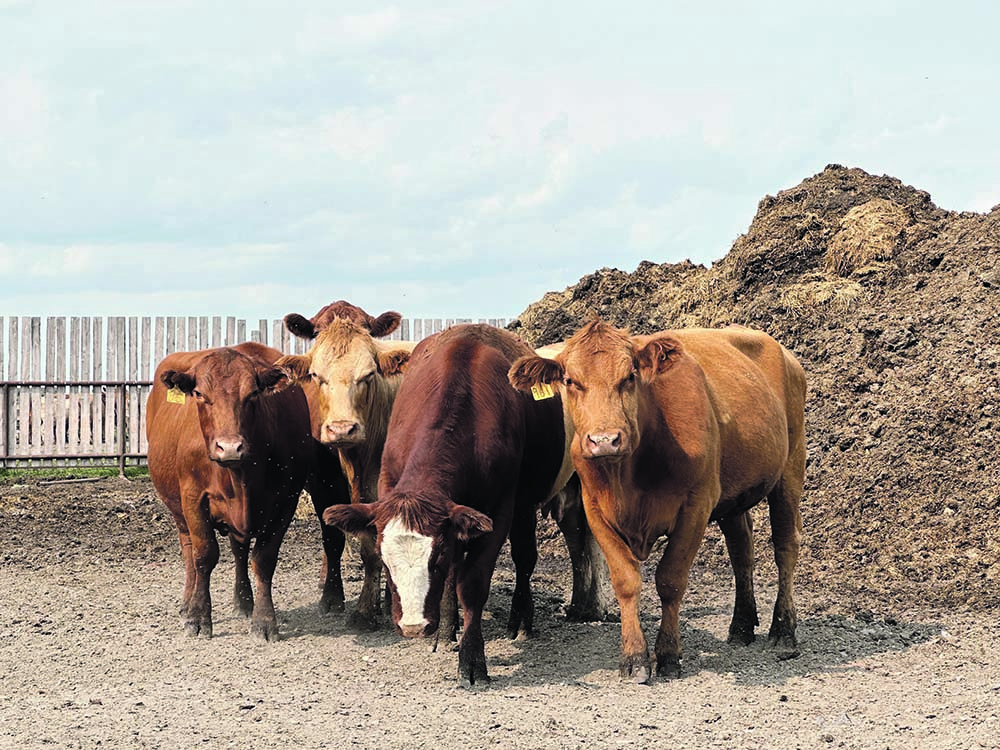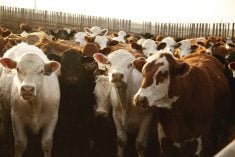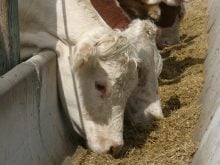Over the last 30 years, John Masswohl has attended hundreds of meetings on agricultural trade in Europe, Asia, Washington D.C., Mexico City, Vietnam, Tokyo and elsewhere.
You name it, he’s been there.
Masswohl, the former director of government and international relations with the Canadian Cattle Association, was heavily involved in the negotiations for Canada’s free trade deal with Europe, the Comprehensive and Progressive Trans-Pacific Partnership (CPTPP), NAFTA 2.0 and many other agreements.
Despite all his experience, Masswohl cannot fathom why the federal government is allowing the United Kingdom to join the CPTPP.
Read Also

More factors affecting winter weather
When you combine a weak La Niña, early Siberian snow, and a warm northern Pacific, it’s easy to see why long-range winter forecasting is so complex.
“Whatever it is that Canada got out of this, I don’t get it. I don’t understand what we got,” said Masswohl from his cottage north of Kingston, Ont.
“I know we had a lot of leverage in that negotiation. And we seem to have just given it away and rolled over. I quite honestly don’t get it.”
In mid-July at a signing ceremony in New Zealand, Great Britain became the 12th member of the CPTPP trade pact, joining Canada, Australia, Brunei, Chile, Japan, Malaysia, Mexico, New Zealand, Peru, Singapore and Vietnam.
International trade minister Mary Ng welcomed the U.K. into the agreement, noting in a press release that both countries are committed to “open, predictable and inclusive” trade.
However, the Canadian Pork Council, the CCA and the Canadian Meat Council are strongly opposed to Britain joining the trade deal. Mostly because the U.K. says Canada’s food safety system is inadequate and it will not allow Canadian beef or pork into Britain.
“This deal with the U.K. is not free trade. It’s ‘we can send you our stuff, but we won’t take yours’,” said Stephen Heckbert, pork council executive director.
Trade data show that Heckbert is correct:
- In the last two years, the U.K. has exported $40 million in beef to Canada, but Canada didn’t sell any beef to Britain.
- For pork, the U.K. shipped $10 million to Canada in 2022. Canada exported no pork to Britain.
Hog and cattle producers in Canada are worried that trade imbalance will soon get much larger.
“We’re wide open for as much as they want to send here… but no (Canadian) beef (or pork) products would be going into the U.K.,” said Dan Darling, president of the Canadian Agri-Food Trade Alliance and a beef producer from Castleton, Ont. “It’s a detriment to our producers.”
British farm groups and some MPs pressured the U.K. government to prohibit the import of Canadian meat, claiming that Canada’s safety standards are lower than Britain’s.
“I am pleased that our government continues to maintain its commitment to our food safety standards,” said U.K. NFU president Minette Batters. “It is an absolute red line for us that food produced using practices that are illegal here — for instance, the use of hormones in beef and pork production and chemical washes for carcases — should not be allowed on our market.”
Months before the signing ceremony in New Zealand, leaders in Canada’s meat sector asked the government to block Britain’s membership in CPTPP — until the U.K. recognized the safety of Canada’s livestock and meat production system.
But that didn’t happen.
“For some reason, our government is just adamant that they (Britain) have got to be brought into it,” Darling said.
Masswohl, who is retired but has a contract to assist the CCA with European and British trade, said the beef association also asked Canada’s negotiators to consider a “lose, lose” scenario.
That is, no beef trade between Canada and the U.K. — in either direction.
“Our view is, if they’re doing nothing for us, we should do nothing for them,” he said.
But British officials said they would not give up anything and they already had access to the Canadian market, he said.
Given that British negotiators wanted to maintain the status quo — of beef and pork trade in one direction — many leaders in Canada’s meat industry say they cannot believe that Ng signed the deal.
The continuation of one-way trade in beef and pork is problematic, but Britain joining CPTPP could hinder the long-term value of the trade pact.
The deal has been a massive success for producers, as Canada is now exporting much larger volumes of beef to Asia:
- In 2018, Canada exported $338 million in beef to CPTPP countries.
- By 2022, beef exports to CPTPP nations hit $866 million.
The CPTPP has been successful because the countries involved were committed to the give and take necessary for a free trade deal to work, and they accepted scientific principles as the basis for food safety regulations.
“(It) has been a very high quality agreement for trade liberalization. And quite frankly, the U.K. has not met that standard and doesn’t deserve to join the CPTPP,” Masswohl said.
“They have really lowered the price of admission (for CPTPP)…. It’s bad trade policy.”
Before Britain formally joins the CPTPP, Canada’s Parliament and other nations must pass the legislation to make that happen.
Beef and pork producers have vowed to block the legislation.
Masswohl believes it could be successful because beef producers have been champions of free trade agreements.
“We’re certainly pro trade. For us to come out against a trade agreement, I think people are going to take notice.”
The Western Producer contacted Ng’s office for comment but didn’t receive a response by press time.
















